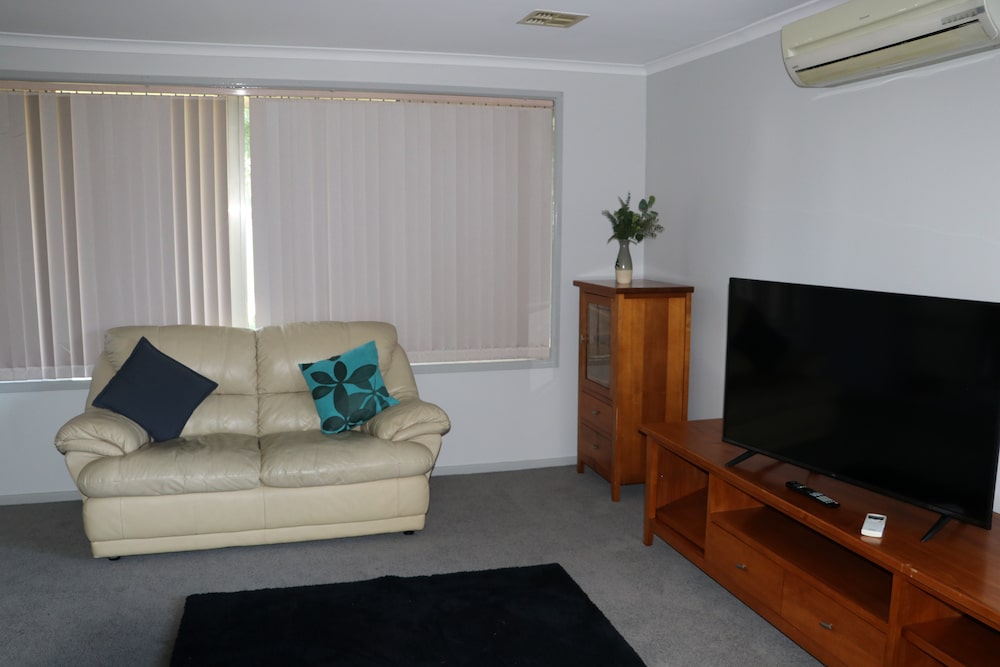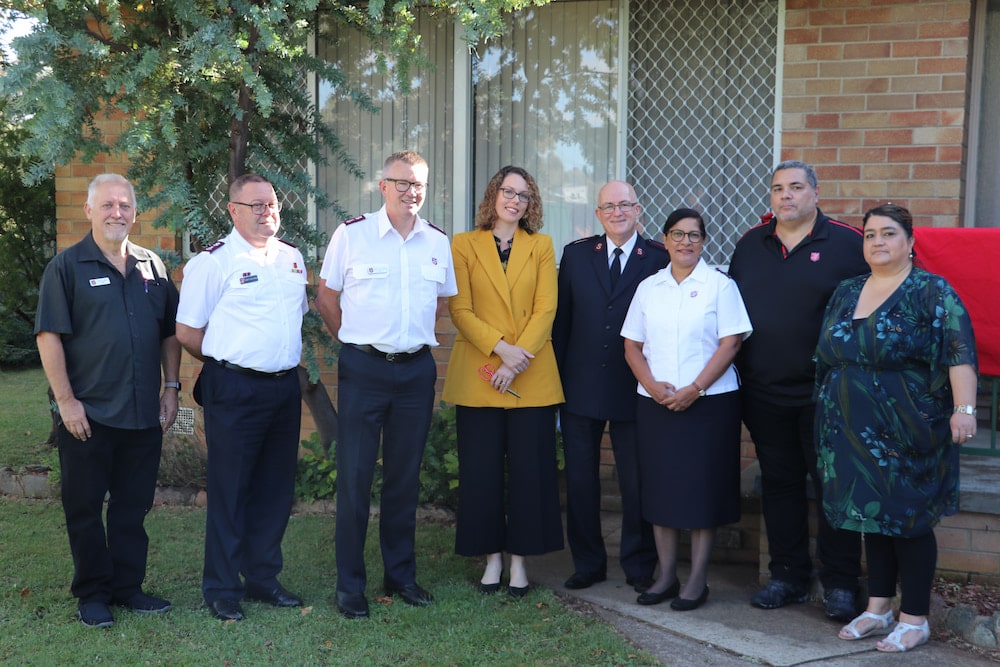As the ACT endures record levels of homelessness, rising cost of living, high rent, and a housing shortfall, more Canberrans are falling through the cracks. So the Salvation Army’s newest venture, the Houses for Homelessness, is a lifeline for families in need.
The two dwellings, in Fyshwick, will help at least four families a year transition from homelessness to long-term accommodation.
They were officially opened today by Alicia Payne MP, Federal Member for Canberra and Co-chair of the Parliamentary Friends for Ending Poverty.
“Canberra has a massive need for large family accommodation, which isn’t being met in a lot of areas,” Cheri Erai-Collins, state manager, Salvos Housing NSW, Queensland and ACT, said.
“We have a lot of large, immigrant families as well… We just don’t have anywhere to house them at the minute.”
The Houses – one four-bedroom, one three, both with large yards – will house two families at any given time for six to 12 months. The first family of six could move in later this week.
“It’s really exciting to see these beautiful properties, and know that some families will be able to call them home very soon,” Ms Payne said.
A local caseworker will help them sort out what brought them to homelessness in the first place, then to move onto somewhere permanent, Ms Erai-Collins explained.
“This is a band aid, in reality, but it’s a much needed one at this point in time,” she said.
The houses were formerly used for the Salvos’ addiction recovery program, but closed when they were damaged in the January 2020 hailstorm. They were restored last month at the cost of $100,000, and private donors helped to fully furnish the houses.

“Homelessness can affect anyone – it doesn’t discriminate,” Kristie Clifton, the Salvos’ homelessness manager for NSW / ACT, said. “People can find themselves in unstable home situations that can range from uncomfortable to distressing and dangerous. We believe that having safe, secure, and affordable housing is a human right.”
Ms Payne agrees. “A lot of us take for granted having a safe and secure home to live in – whereas there are so many people in the Canberra community who don’t have that. …
“How can people get on top of anything else in their life if they don’t have a stable, secure home?
“People see Canberra as a relatively well-off place. We have higher average incomes, low unemployment – but it makes it a particularly difficult place to be poor. It is a very expensive city to live in. we do have problems with homelessness – we have the highest rate of long-term homelessness in the country [since 2018–19]. That’s why projects like this are so important.”
According to the Productivity Commission’s Report on Government Services data (January), there are more than 200 persistently homeless people than there were three years ago. 43 per cent of people accessing homelessness support in the ACT were homeless for at least seven months out of two years – 1.6 times as much as the national average (26.6 per cent).
Ms Erai-Collins believes the rising cost of living is a factor.
“A lot of people are now being priced out of the private rental market … and they don’t have anywhere else to go,” she said.
As interest rates and the cost of living increase, she remarked, owners put rents up, because they cannot afford their mortgage otherwise.
Some families, she noted, have faced rent increases of $70 or $80 a week – 30 or 40 per cent more than they paid originally.
“That’s a national problem; that’s right across Australia. It’s quite bad in places like Canberra, because you get a lot of people coming into Canberra for government jobs who can afford to pay the increased rents. So [they’re] pricing Canberrans out of the market – people who have lived here their whole life.”
Some are forced to live in their vehicles.
“One story that really stuck with me,” Ms Payne said, “was someone at a local emergency relief organisation saying that the best thing they can do for a lot of people at the moment is give them money to register their car so they can continue living in it. So every house that people can access is a great thing.”
The answer, Ms Erai-Collins believes, is more housing: the supply of long-term social and affordable housing across Canberra must be increased, not just transitional dwellings like the Houses for Homelessness.
“The problem in Canberra at the minute is land,” she said. “Obviously, the Suburban Land Agency is releasing land in different parcels – but when it comes to building social and affordable housing, they need to be in areas where there is access to schools, public transport, and shops. The new suburbs don’t have those yet. In five years’ time, they’ll have the shopping centres and schools. But where the land is being released at the minute … it’s not really suitable for a social or affordable response.”
So where does that leave people for the next five years?
“Coming through services like this, I suppose.”
Homelessness and disadvantage are some of the concerns Canberrans talk to Ms Payne most about. The Canberra Forum, the deliberative panel of 40 randomly selected Canberrans she established last month, will debate ways to address housing affordability, home ownership, affordable rent, and what the Federal Government can do. Ms Payne will publish their recommendations on her website. These will guide her advocacy in parliament and the Labor caucus.
Prime Minister Anthony Albanese – who grew up in social housing – made housing a central part of Labor’s election platform last year, Ms Payne remarked.
The National Housing Accord intends to build one million new homes between 2024 and 2029, while a $10 billion Housing Australia Future Fund is intended to supply 30,000 new social and affordable homes in its first five years. (The Greens, however, consider it insufficient.) Some will be in the ACT, Ms Payne expects.
On the local front, Labor has committed $10 million to build a youth foyer at the Woden CIT campus for young people at risk of, or experiencing, homelessness.
- Alicia Payne: Announcing The Canberra Forum (7 July 2022)
- Multi-pronged policy response to homelessness (27 August 2022)
- Labor commits to youth foyer for vulnerable students (12 May 2022)
Meanwhile, the Salvation Army runs addiction recovery and homelessness services in the ACT, Moneycare financial counselling centres, Employment Plus offices, Salvos Stores, aged care services, and Oasis youth programs.



